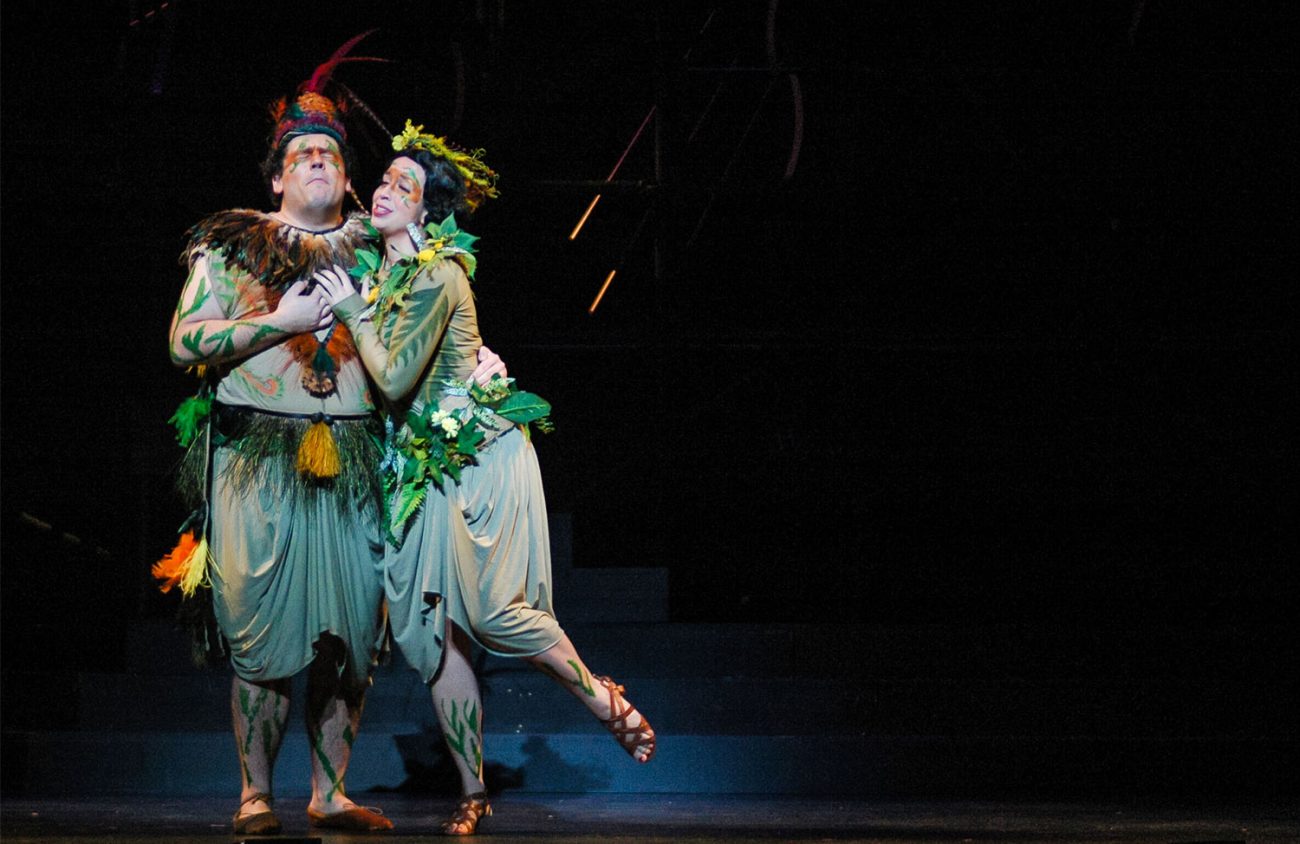A lot of people think opera is just plain weird. But Wolfgang Mozart’s The Magic Flute is weird even by opera standards.
Take a conventional quest story — Tamino seeks wisdom through a series of ordeals — overlay a romantic quest – boy (Tamino) seeks/loses/wins girl (Pamina) — and add in Papageno, a feathered comic figure who is half bird and half man. Next throw in a dollop of Freemasonry, add a pound of ancient Egypt-style “Orientalism” and insert one of the most challenging coloratura soprano passages in all of Western music, and you’ve got what might be the strangest and most delightful opera in the canon. It also features some of Mozart’s coolest music.
So it’s no surprise that Eugene Opera is turning once again to Magic Flute, which has a two-performance run Jan. 28 and 30 at the Hult Center for the Performing Arts.
Back to the weird. The Eugene Opera production will feature a design inspired by the king of weirdness himself, the late Edward Gorey.
For the uninitiated, Edward St. John Gorey (1925-2000) was a New York/Cape Cod artist, writer and illustrator known for his macabre, unsettling line drawings done in Victorian and Edwardian style. In books with such titles as The Glorious Nosebleed and The Loathsome Couple, he created an alternate universe whose fashionably dressed denizens are as creepy as oozing fungus.
“It’s an Edward Gorey world,” director Valerie Rachelle, whose day job is as artistic director of Ashland’s Oregon Cabaret Theatre, says of this production of Magic Flute. “I love the detail, the black and white energy. It’s a dark, mystical, magical carnival.”
Augmenting the simple, stark sets designed for the show by Joe C. Klug will be projections by John Park of Eugene’s Harmonic Laboratory. “It all looks like some kind of mausoleum,” Rachelle says. “We’ve made it a world where it’s basically magician against magician.”
Unlike most classical opera, Magic Flute — which was written in German — is a hybrid form called singspiel, which includes spoken dialog as well as singing. In the Eugene production, the singing will be in German, with projected English supertitles, with dialogue in English, in a new translation by Rachelle herself.
The cast includes tenor Derrek Stark as Tamino, soprano Camille Ortiz as Pamina, baritone Zachary Lenox as Papageno, soprano Melanie Spector as Queen of the Night, bass Andrew Potter as Sarastro and bass-baritone Benjamin Brady as Sprecher. Andrew Bisantz conducts.
Eugene Opera’s The Magic Flute is 7:30 pm Friday, Jan. 28, and 2:30 pm Sunday, Jan. 30, at the Hult Center’s Silva Concert Hall. Tickets are $15-$79 at EugeneOpera.org. The Hult Center requires masks and proof of vaccination or recent negative test. See HultCenter.org for details.
